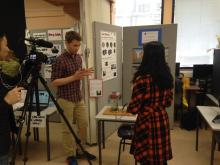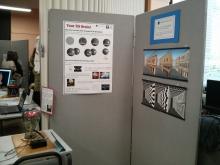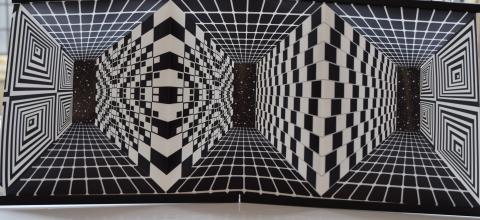This March saw the return of the Cambridge Science Festival, a city wide event which showcases the variety of new and exciting science going on across Cambridge. The Adaptive Brain Lab took part, spending the day presenting our work alongside other labs from the psychology department.
Our stand gave an opportunity for visitors to experience a range of visual illusions, and to discover the science behind their creation.
In addition to the basic science, we also demonstrated some of the methods and approaches we use in the lab. A star attraction was the demonstration of brain stimulation by transcranial magnetic stimulation (TMS), built by Michael Morgan, Glenn Harrison and Lukas Schaeffner, whose presentation was filmed by China Central TV (pictured)!
We are now preparing for the upcoming Cambridge BrainFest on June 24th/ 25th – come along to see our stand in the Corn Exchange!




